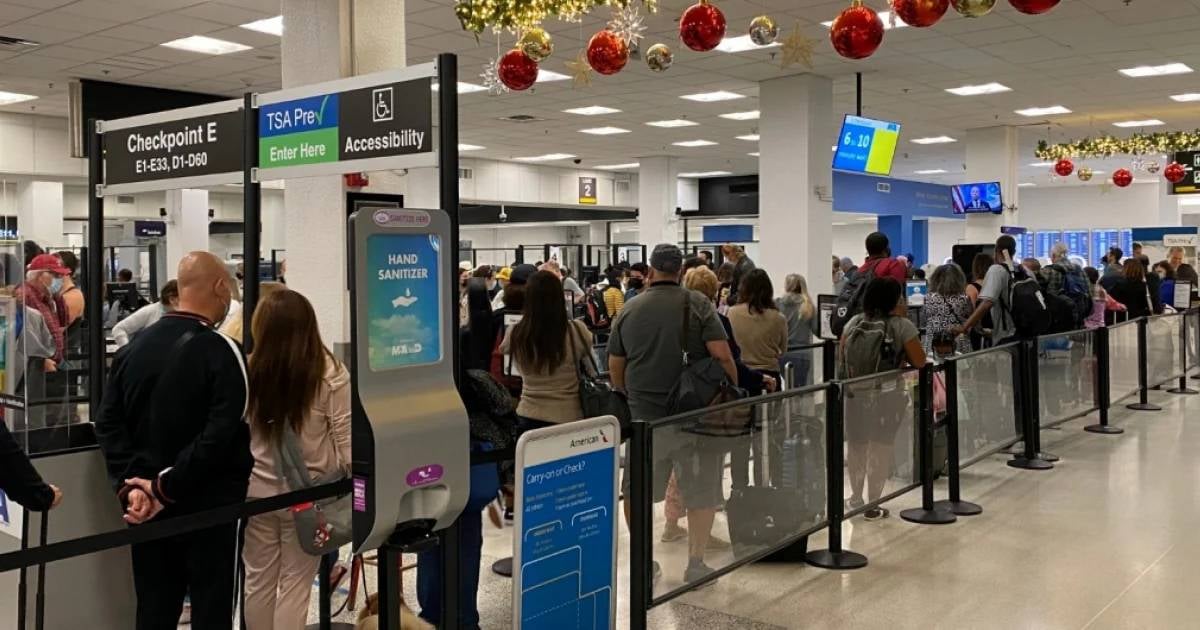The humanitarian parole program, which since its inception in January 2023 has facilitated the legal entry of over 110,000 Cubans into the United States, is now at a crossroads. Recent statistics from the U.S. Customs and Border Protection (CBP)
A Program on Hold: The Numbers Tell the Story
Out of the permits approved last month, 30 were for Haitians, 10 for Nicaraguans, and 10 for Venezuelans. Ángel Baullosa, a developer of Immigreat Case Tracker—a tool that monitors the program's progress using data from over 368,000 users—expressed his concerns. "We have seen almost no movement, as if the program is frozen. What the government just confirmed was an open secret," Baullosa remarked.
Prior to its temporary suspension in August due to alleged fraud cases, the parole was processing between 200 and 300 approvals daily. Currently, the records show a dramatic change: zero approvals and between 80 and 90 denials each day. Even previously approved cases are being overturned, leaving thousands of families in limbo as they await answers.
What Lies Ahead for Parole in 2024?
The uncertainty surrounding the program deepens with Donald Trump's promises to eliminate it upon his potential return to the presidency on January 20. Speaking to the same network, immigration attorney Rosaly Chaviano noted that, although a suspension of the program wouldn't immediately impact those who have already been granted permits and are on U.S. soil, "the president could sign an order to revoke their validity."
In this context, Chaviano advises parole beneficiaries to explore alternative ways to legalize their status, such as seeking asylum, obtaining a work visa, or pursuing a family petition. For Cubans, the Cuban Adjustment Act remains a critical option, allowing them to obtain permanent residency after one year and a day in the country.
Falling Short of Promised Goals
The program was initially announced with a commitment to issue 30,000 visas monthly, a target that has not been met since its launch. Although U.S. authorities acknowledge that the parole has reduced illegal border crossings by 98%, they have not provided explanations for the recent steep decline in approvals.
Meanwhile, thousands of applicants, particularly Cubans, are facing a mix of frustration and hopelessness. With the potential for political change looming in the White House, the humanitarian parole, once a gateway for thousands of families, appears to be nearing its end. The total number of migrants approved under the program stands at 531,670, illustrating its impact, yet its future remains uncertain.
Common Questions About the Humanitarian Parole Program
What is the current status of the humanitarian parole program for Cubans?
As of November, no permits have been approved for Cuban applicants under the humanitarian parole program, indicating a significant decline and uncertainty about its continuation.
How many visas were the program supposed to issue monthly?
The program was initially expected to issue 30,000 visas monthly, a goal that has not been achieved since its inception.
What options do Cubans have if the parole program is eliminated?
Cubans can explore other pathways such as asylum, employment visas, family petitions, or utilize the Cuban Adjustment Act to obtain permanent residency.
